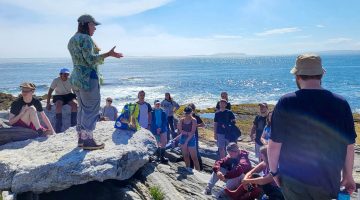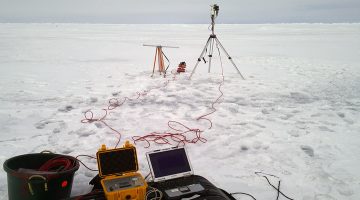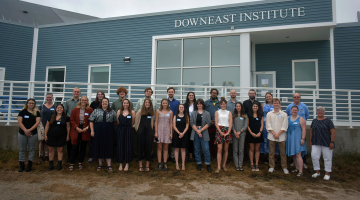First-year UMaine students dive into marine sciences at Darling Marine Center
The University of Maine Darling Marine Center (DMC) hosted a three-day orientation program last week for 30 first-year students in the School of Marine Sciences (SMS). William “Wge” Ellis, associate director of UMaine SMS, leads the annual boot camp, in cooperation with DMC director Heather Leslie and the other seven UMaine faculty based at the […]
Read more


